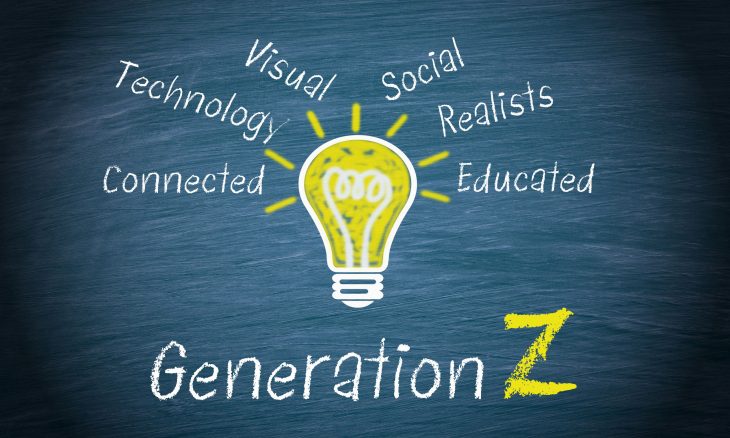We have heard a lot about Millennials (i.e., Generation Y), their impact on business, politics and society, and how different their values and practices are. Well, get ready for Generation Z. Their attitudes and actions are even more progressive and even more confounding to marketers. This Generation Z (born after 1996) is the best educated, most diverse and easily most open to emerging social trends of any prior generation. And their potential impact on commercial and political brands will be transformative.
All brands should be strategically positioned to not only appeal to their current customers, but to lay the foundation to capture the emotions that will cultivate a sense of loyalty of tomorrow’s consumers. More and more, younger people will choose brands with values that coincide with their own. This is why political parties, candidates and all businesses should start making a diligent effort to reach these emerging Generation Z and Millennial consumers today, to gain their trust and connect with their values in ways that will establish early brand loyalty preferences.
Millennials have already indicated a new direction for how political parties and businesses should re-position their brands to adjust to their more progressive values. Now the Pew research study from late 2018 has provided a glimpse of how Generation Zers will move the needle further left on most controversial political and social issues.
For example:
• Role of Government – Younger Americans in both parties are challenging the long-held Republican position of less government. Responding to the question of whether “Government should be doing more to solve problems” versus the “Government is doing too many things which are better left to businesses:”
Gov’t. Do More Better Business/individuals
Gen Z (b. after 1996) 70% 29%
Gen Y (Millennials b. 1981-96) 64% 34%
Gen X (b. 1965-1980) 53% 48%
Baby Boomers (b. 1946-1964) 49% 49%
Silent Generation (b. 1928-45) 39% 60%
What’s particularly surprising is that more than half of Republican Generation Zers (52%) think the government should be doing more, even much higher than Republican Millennials (38%), while the Silent Generation Republicans are at the bottom (12%).
• Climate Change – Most Gen Z and Millennials believe the earth is getting warmer “due to human activity” (54/56%) versus Boomers and the Silent Generation (45%/38%). Furthermore, only 14%/16% of all Gen Z and Millennials believe climate change is “due to natural patterns.” Even Republican Gen Z and Millennials are less likely to say the earth is warming because of natural causes (18%/30%), versus Republican Boomers and the Silent Generation (42%/41%).
• Racial and Ethnic Diversity – The younger generations feel very differently than older people on racial issues. Gen Z (66%) and Millennials (62%) believe blacks are treated unfairly, compared to 49% of Boomers and 44% of the Silent Generation. Similarly 62% of Gen Z and 61% of Millennials say increased racial and ethnic diversity is a good thing for our society, but only 48% of Boomers and 42% of the Silent Generation feel the same way.
The implications (and risks) for the Republican Party brand, including its individual members, are quite ominous. There are 68 million Generation Z Americans, 22% of the nation’s population, and most will be voting soon. While all generations of Democrats consistently share the same positive views on these social issues, the risk to Republicans of not adapting to these two younger Generations’ preferences can be troublesome in the long run.
There are also noteworthy examples of well-established product brands taking controversial positions to capture the hearts of our youth. Nike’s use of Colin Kaepernick as a spokesman because his “doing it his own way” values appealed to young athletes (the majority of Nike’s consumers are under 35). This Pew research study showed that 61% of Generation Z and 62% of the Millennials approved of NFL players kneeling during the national anthem, as opposed to only 29% of the Silent Generation.
More recent is Gillette’s two minute ad that advocates a higher standard of behavior and accountability for men in society. Gillette stated that it is committed to embracing a new era of masculinity that promotes “positive, attainable inclusive and healthy versions for what it means to be a man.” Although this ad created a mini-culture war, Gillette views this initiative as a way to strategically embrace the emerging social values of the next generation.
Another example is Coca Cola with their ad showing “America the Beautiful” sung in different languages to show their commitment to tolerance, diversity and inclusion, important values very relevant to Generation Z and Millennials.
Success requires identifying and engaging the values of your target audience. While political parties and reputable brands may risk alienating some from their current base of customers, the strategic benefits of bonding with the younger generations and capturing their loyalty early on should outweigh these risks in the long term.





